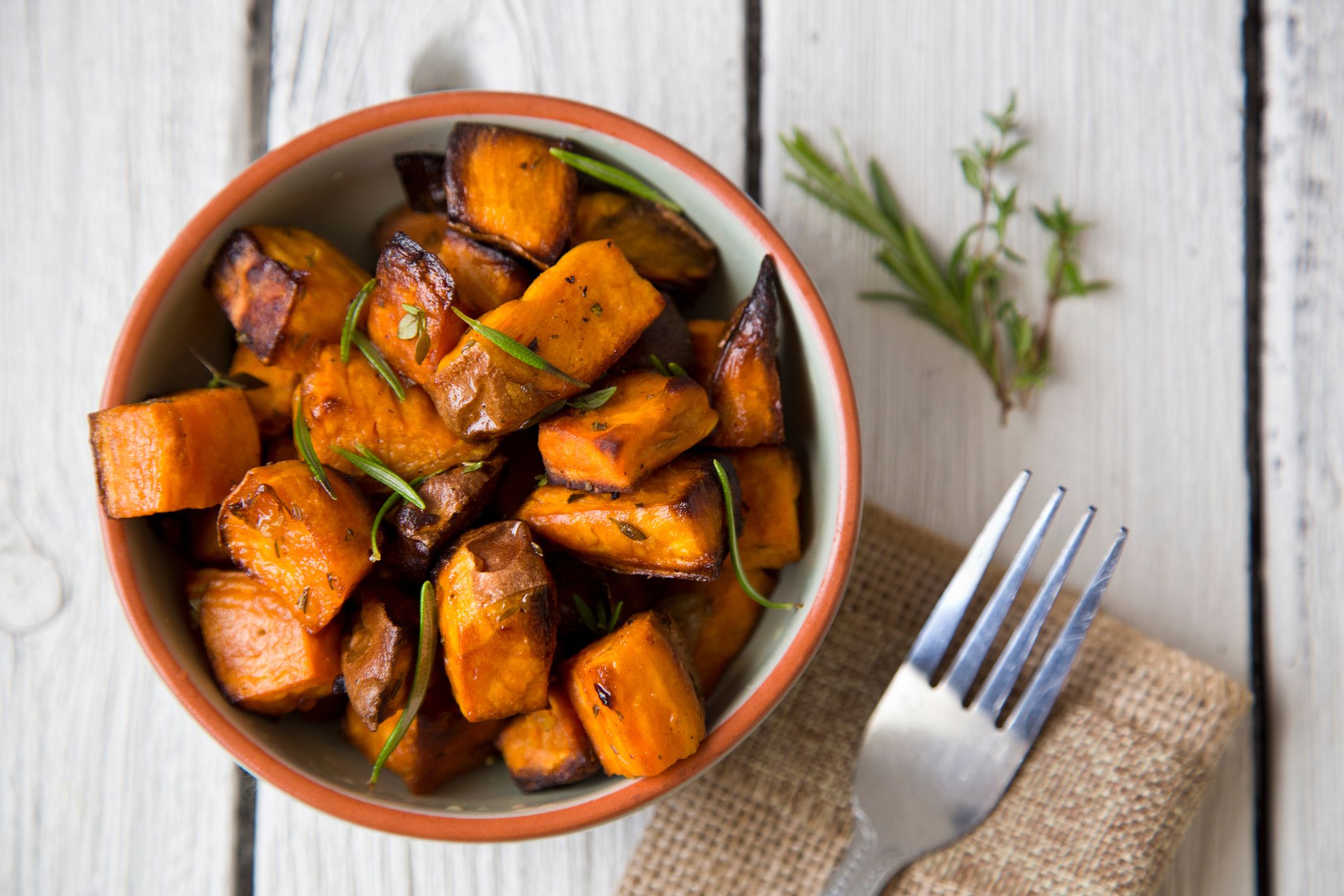
Ever wondered what's packed inside those earthy, tuberous roots we call yams? Well, you're in for a treat! Yams are not just any ordinary spuds; they're a powerhouse of nutrition with benefits that might just surprise you. From boosting your energy to supporting your health, these underground gems are more than meets the eye. Yams, especially when considering their nutrition per 100g, are incredibly nutritious. They're loaded with vitamins, minerals, and fiber, making them a fantastic addition to any diet. So, why not dig a little deeper into what makes yams so great? Stick around as we peel back the layers to reveal 22 amazing nutrition facts about yams. Trust me, it's going to be a delicious discovery!
Key Takeaways:
- Yams are a nutritious and versatile food, offering benefits like boosting immunity, improving digestive health, and supporting heart health. They can be enjoyed boiled, baked, or added to soups and stews.
- Yams have cultural significance, diverse varieties, and can be stored for long periods. They are a global staple, economically important, and environmentally beneficial. Ongoing research shows their potential in preventing chronic diseases.
What Are Yams?
Yams are tuberous roots, a staple food in many parts of the world, particularly in Africa, Asia, and the Caribbean. Unlike sweet potatoes, with which they're often confused, yams are less sweet and more starchy. They play a crucial role in the diets of millions, providing not just sustenance but also various health benefits due to their nutritional content.
Nutritional Profile of Yams
When considering yams' nutritional value, it's impressive how much these tubers offer. Here's a breakdown of what 100 grams of yams can provide:
-
Calories: Yams are relatively low in calories, with 100 grams containing about 118 calories. This makes them a good choice for those monitoring their calorie intake.
-
Carbohydrates: With 27.9 grams of carbohydrates per 100 grams, yams are a great source of energy. This includes 4.1 grams of dietary fiber, which aids in digestion and promotes a feeling of fullness.
-
Proteins: Yams contain 1.5 grams of protein per 100 grams, contributing to muscle repair and growth.
-
Fats: These tubers are very low in fat, with only 0.17 grams per 100 grams. This low-fat content makes yams an excellent food for heart health.
-
Vitamins and Minerals: Yams are rich in vitamins C and B6, providing 17.1 mg and 0.293 mg respectively per 100 grams. They also offer significant amounts of potassium, manganese, and copper, essential for various bodily functions.
Health Benefits of Yams
Yams are not just nutritious; they offer several health benefits too:
-
Boosts Immunity: The high vitamin C content in yams helps strengthen the immune system, making the body more resilient against infections.
-
Improves Digestive Health: Thanks to their fiber content, yams can improve digestive health by preventing constipation and reducing the risk of colon cancer.
-
Supports Heart Health: Low in fat and high in potassium, yams support heart health by maintaining normal blood pressure levels and reducing cholesterol.
-
Aids in Weight Management: The fiber in yams also aids in weight management by reducing appetite and increasing the feeling of fullness.
-
Regulates Blood Sugar Levels: Yams have a low glycemic index, which means they can help regulate blood sugar levels, making them beneficial for people with diabetes.
How to Incorporate Yams into Your Diet
Yams can be enjoyed in various ways, making them a versatile addition to any diet:
-
Boiled or Steamed: This is the simplest way to prepare yams, preserving most of their nutrients.
-
Baked or Roasted: Baking or roasting yams brings out their natural sweetness, making for a delicious and healthy side dish.
-
In Soups and Stews: Yams can be added to soups and stews, where they absorb the flavors of the other ingredients while contributing to the dish's overall nutritional value.
-
As Flour: Yams can be dried and ground into flour, used in baking or as a thickener for soups and sauces.
Interesting Facts About Yams
Beyond their nutritional benefits, yams have some interesting aspects:
-
Cultural Significance: In many cultures, yams are celebrated with festivals and ceremonies, highlighting their importance in local diets and traditions.
-
Diversity: There are over 600 varieties of yams, each with its unique taste, texture, and nutritional profile.
-
Longevity: Yams can be stored for up to six months without refrigeration, making them a reliable food source during off-seasons.
-
Medicinal Uses: In some cultures, yams are used medicinally to treat various conditions, from menopause symptoms to poor circulation.
-
Global Staple: Yams are a staple food in over 50 countries, showcasing their global importance in fighting hunger and malnutrition.
-
Economic Importance: For many farmers in developing countries, yams are not just food but a significant source of income.
-
Environmental Benefits: Yams are hardy crops that can grow in marginal soils, reducing the need for chemical fertilizers and promoting sustainable agriculture.
-
Nutritional Research: Ongoing research into yams' nutritional benefits continues to reveal their potential in preventing and managing chronic diseases, making them a subject of interest in nutritional science.
A Nutritious Wrap on Yams
Yams, packed with essential nutrients, offer more than just a tasty addition to meals. With every 100g serving, they deliver a powerful punch of vitamins, minerals, and fiber, making them a smart choice for those looking to enrich their diet. They're not just about the carbs; yams are a source of energy that comes with health benefits like improved digestion, better heart health, and a boost to your immune system. Whether you're mashing them, baking, or adding them to your favorite stew, yams bring flavor and nutrition to the table. So, next time you're at the grocery store, remember these tubers are more than meets the eye. They're a versatile, nutritious option that can support your health in numerous ways.
Frequently Asked Questions
Was this page helpful?
Our commitment to delivering trustworthy and engaging content is at the heart of what we do. Each fact on our site is contributed by real users like you, bringing a wealth of diverse insights and information. To ensure the highest standards of accuracy and reliability, our dedicated editors meticulously review each submission. This process guarantees that the facts we share are not only fascinating but also credible. Trust in our commitment to quality and authenticity as you explore and learn with us.


